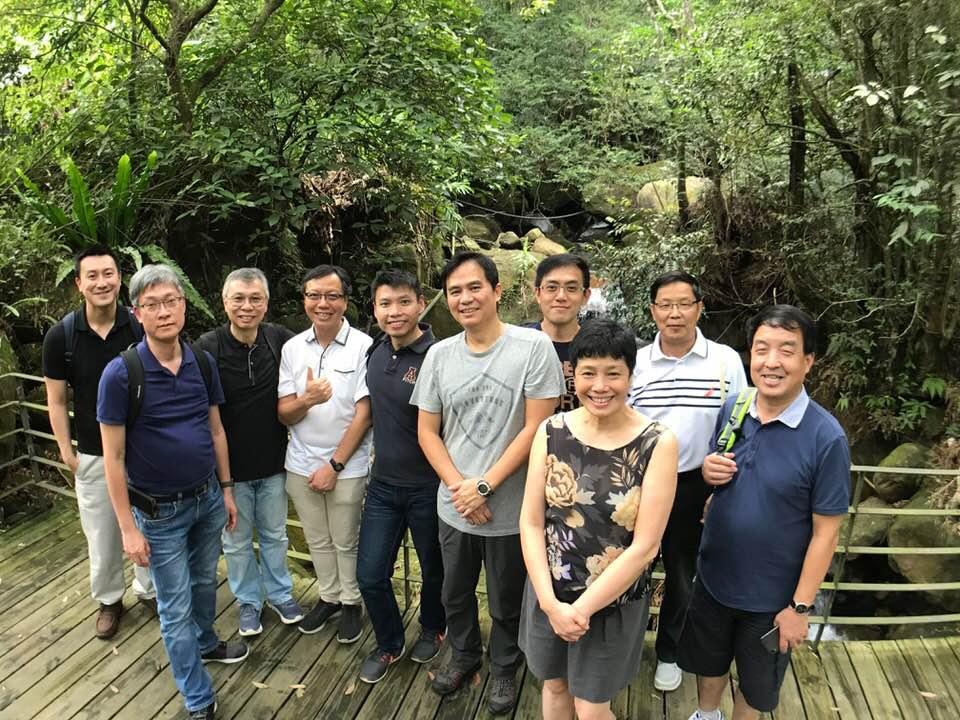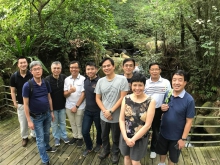News Centre
CUHK Scientists Find Small Peptides Produced by Non-coding RNA Redefines Coding and Non-Coding RNAs
A research team from the Centre for Genomic Studies on Plant-Environment Interaction for Sustainable Agriculture and Food Security recently found that some non-coding RNA can produce very short proteins (small peptides), which play an important role in regulating organismal development and stress resistances. The findings challenge the very definition of non-coding RNAs and may open a new research path for future drug and crop improvement. The research article has been published in the journal Plant Physiology. (See note)
Long Non-coding RNAs
Genetic information holds the secret of life and is encoded in DNA. The process of decoding determines how the living organisms survive. Scientists suggest that most RNA molecules (coding RNA) will be decoded into proteins, while some (non-coding RNA) function to regulate gene expression without translating into proteins. Over ten years and more, a computational modal was established to evaluate the coding potential of newly discovered RNAs, thus determining the research direction. There are different types of non-coding RNA, usually determined by their length. Those with at least 200 nucleotides in length are called long non-coding RNAs (lncRNAs).
Prof. Ting-Fung Chan, a member of the research team and Associate Professor from the School of Life Sciences at CUHK, has been studying the identification and bioinformatics analysis of lncRNA. He discovered that small peptides often exist in cells. These small peptides have less than 50 units of amino acid and, without attentive study, they are often regarded as break-down products of longer proteins. With the help of an advanced mass spectrometer, Prof. Chan’s research group has identified IncRNA to be the source of small peptides. The findings imply that scientists should restudy the classification and function of long non-coding RNA.
The team also discovered that the expressions of some of these small peptide-coding RNAs are closely associated with the various stress conditions under investigation. Consequently, these small peptides may also have relevant biological functions. Small peptides have been shown to act as important signaling molecules in both animals and plants. In plants, it has been reported that some small peptides could regulate both biotic and abiotic stresses.
A potential new strategy in crop improvement
With the support of the Research Grants Council (RGC) through Areas of Excellence Scheme, the CUHK research team from the Centre for Genomic Studies on Plant-Environment Interaction for Sustainable Agriculture and Food Security has been committed to investigating underlying mechanisms of plant-environment interactions and developing new plant and agricultural technology to strike a better balance between sustainable agriculture and food security.
Prof. Chan’s team led the identification and bioinformatics analysis of lncRNA. Prof. Sai-Ming Ngai’s team provided their expertise in mass spectrometry analysis. Prof. Hon-Ming Lam, Director of the Centre, contributed the biological knowledge on plants and soybean. A combination of these domain knowledge and the state-of-the-art genomic and proteomic technologies has revealed that some of the lncRNAs are encoding for small peptides, and thereby opened a new research path for future soybean and other crops improvement.
Note:
Analysis of Soybean Long Non-coding RNAs Reveals a Subset of Small Peptide-Coding Transcripts, Plant Physiology
http://www.plantphysiol.org/content/early/2019/12/27/pp.19.01324.abstract



